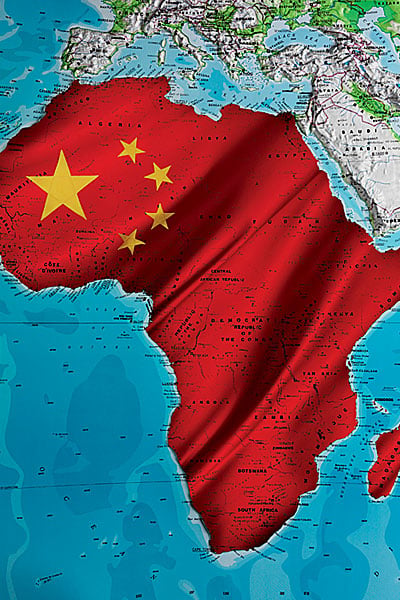Date: Thu, 11 Feb 2016 22:14:06 +0100
China

China’s African strategy
Although lacking a detailed timeline, the agreement will come as a natural conclusion to what has been an ever tightening of relations between the two countries, dating back to China’s involvement in anti-piracy missions in the Gulf of Aden back in 2008.
However, unlike NATO countries and Japan who are also conducting anti-piracy missions in Djibouti, China currently has no permanent naval base in the region. According to the Chinese Foreign Ministry Spokesperson, Hong Lei, “In fulfilling escort missions, [China] encountered real difficulties in replenishing soldiers and resupplying fuel and food, and found it really necessary to have nearby and efficient logistical support.”
Djibouti was the natural choice for the Chinese given that the former French colony already hosts a number of European outposts as well as Camp Lemonnier, the U.S. expeditionary base from where drone operations in Yemen and Somalia are conducted.
In recognition of Djibouti´s geostrategic importance, the country has been the recipient of many financial blandishments from China over the past few years. These include the $590 million injection of funds for the development of its port, aimed at transforming it into a major transshipment terminal, and investment in the $4 billion railway connection between Djibouti and its landlocked neighbor, Ethiopia. It also comes on the back of a deal to set up a free trade zone for Chinese companies in Djibouti and allow Chinese banks to begin operating in the country.
While undoubtedly important, China’s first overseas military facility in Djibouti only accounts for a small piece in a much bigger puzzle being put together by Beijing. Djibouti, and its much larger neighbor to the north, Egypt, mark the final stage posts in the maritime leg of China’s ambitious One Belt One Road (OBOR) project: a vast trade route encircling half the globe and connecting China with Europe along the ancient Silk Road.
Supported by the Asian Infrastructure Investment Bank and the Silk Road Fund, the overland route will see massive investments in infrastructure, stretching from western China through central Asia and the Middle East into Europe via Russia, Greece and Turkey.
For the maritime route to be successful, it will require that Chinese merchant ships are able to reach the Suez Canal unhindered after traversing the Indian Ocean. Djibouti’s position on the cusp of the Red Sea, leading into the Suez Canal and the Mediterranean, makes it a vital node in that network.
Given that investment in OBOR is expected to top one trillion dollars over the next 10 to 15 years, it is no surprise that the People´s Liberation Army has been slowly moving away from its traditional stance of protecting the homeland and towards establishing a force projection capability in line with its expanding overseas interests.
This newfound assertiveness, of which the base in Djibouti is China’s first statement of intent, is being watched with caution by Western capitals. But according to Shen Dingli, a professor of international relations at Fudan University in Shanghai, as quoted in the New York Times, it is keeping in line with the behavior of any power whose financial interests abroad are in need of protection.
“The United States has been expanding its business all around the world and sending its military away to protect those interests for 150 years,” Mr. Shen said. “Now, what the United States has done in the past, China will do again.”
However, while China is free to pursue its political ambitions, its presence will most definitely have a negative impact on Djibouti’s freedoms. Beijing’s strict policy of noninterference means that President Ismael Omar Guelleh knows that Beijing will not be critical of his bid to run for a fourth term as president this coming April.
Ever since he inherited the presidency from his uncle in 1999, Guelleh has used a combination of coercion and bribery to keep his hold on power. In 2010 he amended the constitution and scrapped term limits, reneging on earlier promises to run for no more than two terms.
Since then the country has continued its slide down the international rankings for press freedom and human rights and political instability has grown. In 2014, Djibouti suffered its first terrorist attack against Western personnel in the country, stoking fears that the presence of foreign soldiers in a poor, oppressed Muslim country could provide a fertile breeding ground for Islamic extremism. And last December, up to 19 opposition activists were killed when police opened fire at a religious procession, prompting the International Criminal Court to officially place Djibouti on its watch list.
While Guelleh has promised to transform the country into Africa’s Dubai or Singapore, feverishly courting Beijing and Washington for continued financial assistance, the upcoming presidential elections will most likely dispel the fiction that Djibouti and its people are actually benefiting from international attention.